August and September 2024 Reads
piñeiro, everett, dumas, bradbury, butler, samatar & more
Welcome to one of my monthly wrap-up posts, where I briefly review everything I read! I read widely across many genres, from classics to literary to speculative fiction. With these I’m hoping to shed some light on backlist gems, perhaps push you to read outside your genre comfort zone, and also highlight which new releases are worth your time.

I’ve left this for far too long and now have a teetering stack of books to review for you from August and September. As usual, I debated how to group them. This time, rather than great/good/meh I’ve gone for the method I use myself when I’m tagging up books. There are my favourites, then the books I mostly recommend, followed by the books that I recommend only for specific readers, and then the ones I don’t recommend at all (luckily we’ve none of them this time round). You can’t always explain what it is that differentiates between a favourite and a book you just highly recommend, it’s usually one of those finicky personal things. But I do always feel the need to differentiate between the two for you anyway. (There is further differentiation between a monthly favourite and a yearly favourite and an all-time favourite, but that’s not relevant today.)
my favourites
My Friends by Hisham Matar (2023)
I’m of the party that believes the fact that this wasn’t shortlisted for the Booker this year is a literary crime. I’d like to bet it’s a darn sight better than a significant amount of the long list, though as I’m not going to put myself through the pain of reading said list, I’ve used my research and trusted reviewers to confirm this.
I was deeply moved by this novel, and I unreservedly love it. It follows Khaled, a Libyan exile, walking from King’s Cross to his home in West London. He has just dropped off one of his closest friends there at the train station, a friend who will now begin a long journey to America, a journey that may mean Khaled never sees him again. So, as he walks, he thinks about his friendships and how he came to be here, in London, far away from his family and point of origin.
He’s stranded there primarily because he attended the fateful demonstration outside the Libyan embassy in London on the 17th April 1984, when shots were fired into the crowd from its windows. Khaled is one of a number of injured demonstrators, and as he recuperates in hospital afterwards, the seriousness of the situation begins to sink in. He is now a target for Qaddafi’s regime in Libya, which had no qualms about murdering people wherever they were, and certainly would not allow them to return home unharmed. Fearful of being tracked down, he decides not to return to the University of Edinburgh where he was studying and hunkers down in London instead, clinging to faithful friends, including the one that convinced him to go to the demonstration in the first place.
This is a beautiful and painful meditation on exile, friendship, a life that goes sideways. Matar writes in long, meditative sentences that have a beautiful cumulative rhythm to them. I’ve thought about these images from the opening chapter of the book many times since reading it:
It is, of course, impossible to be certain of what is contained in anyone’s chest, least of all one’s own or those we know well, perhaps especially those we know best, but, as I stand here on the upper level of King’s Cross Station, from where I can monitor my old friend Hosam Zowa walking across the concourse, I feel I am seeing right into him, perceiving him more accurately than ever before, as though all along, during the two decades that we have known one another, our friendship has been a study and now, ironically, just after we have bid one another farewell, his portrait is finally coming into view. And perhaps this is the natural way of things, that when a friendship comes to an inexplicable end or wanes or simply dissolves into nothing, the change we experience at that moment seems inevitable, a destiny that was all along approaching, like someone walking towards us from a great distance, recognizable only when it is too late to turn away. No one has ever been a nearer neighbour to my heart. I am convinced, as I watch him go to his train for Paris, that city where the two of us first met so long ago and in the most unlikely way, that he is carrying, right where the ribcages meet, an invisible burden, one, I believe, I can discern from this distance.
When he still lived here in London, hardly a week would pass without us taking a walk, either through the park or along the river. We sometimes got into a debate, usually concerning an obscure literary question, arguments that, perhaps like all arguments, concealed deeper disagreements. I would sometimes, to my regret, for the gesture has always displeased me, tap my forefinger on his chest and let my palm rest there for a fleeting moment, as though to keep whatever it was that I believed I had placed there stable, and I would once again take note of the distinct pattern of his ribs, the strange way his bones protruded, as if in constant expectation of an attack.
I had to quote a big chunk like this because that is how this book works; you can’t take one of its sentences in isolation if you want to get the full effect. And this careful layering by Matar, each sheaf of quiet observation, builds to press, slowly, on your readerly heart. It brought me to tears multiple times. Most of the books that stay with me have this deep sense of humanity to them, and Matar’s style stands out to me at one of the most effective I’ve come across recently at really communicating that humanity to the reader.
He also balances the novel really well by making the chapters fairly short, meaning at no point does it feel entirely overwhelming. Considering we’ve talked about story recently, I think this is where the book’s great storytelling comes in. Like the style itself, each chapter, too, builds the picture outwards from that introductory image of Khaled watching Hosam walk away. I found it compelling throughout, and whilst it doesn’t necessarily feel like it, there are plenty of high stakes events here. Since finishing it, I’ve wanted to compare it to Anuk Arudpragasam’s A Passage North, a similarly introspective novel in which the protagonist thinks about his life as he takes a journey; both touch on big political events but also art and literature and smaller, more personal moments.
I don’t think this book will work for absolutely everyone, and I think you’ll pretty much be able to tell whether it will or not by reading the quote above. This meditative style just won’t suit every kind of reader, and it will feel long and meandering to some. There were occasional moments where I felt Matar lost control over the narrative voice so that it ranged just a bit too far, and in another world perhaps you would have tightened up some of the chapters in the latter half, bringing a bit more focus. But this would make it into a different novel, and I don’t think I want a different novel. I want this one, in its sometimes overflowing humanity. I look forward to reading more of his work.
Dandelion Wine by Ray Bradbury (1957)
This book is completely and utterly strange, and I think that’s why I like it so much. Bradbury, best known for his science fiction novel Fahrenheit 451 (and other contributions to the genre like The Martian Chronicles and The Illustrated Man), writes here a coming-of-age tale somewhat based on his own experiences. But there’s more to it than meets the eye.
We follow Douglas Spalding in the summer of 1928 in fictional Green Town, Illinois. The book opens with Douglas experiencing the kind of revelation that many on the cusp of adolescence have felt; “I’m really alive! he thought. I never knew it before, or if I did I don’t remember!” This breathless tone that I associate with the 50s is apparent throughout much of these early sections, to great effect (but perhaps to the frustration of readers looking for a style more in keeping with our modern day cynicism). We really feel Douglas’ awakening to the world, as he begins his summer rituals; obtaining a new pair of sneakers, preparing dandelion wine with his grandparents. He anticipates a summer full of fun and freedom, but of course he cannot extricate himself from the looming loss of innocence. And so we attend the death of a beloved family member, the realisation of his own mortality, the feeling that everything around him is changing irrevocably. And the change isn’t just happening inside Douglas, real change is here, starting to invade Green Town. Bradbury writes movingly of this lost world, already almost unrecognisable I imagine by 1957.
But this is where the real fun of this novel begins. The novel slips into a strange surrealism that is almost undetectable at first; you mean to tell me this character Doug meets in front of the United Cigar Store is actually going to attempt to make a Happiness Machine? Indeed, the machines begin to proliferate. Two elderly ladies run someone down with what they call the ‘Green Machine’, a kind of open electric car. On the other hand, a local colonel with stories of the Civil War is referred to as a time machine. He is so depicted that it’s almost impossible to tell whether he really is mechanical or the local boys just like to call him that because of his depictions of times long past. We begin to wonder; are we just inside an imaginative boy’s mind? Whether we are or not, it captures something of the uncomfortable magic of this completely unsettling time of life.
Again and again, the era of the machine begins to trickle into this small town, largely to ill effect. But the scenes that come from these changes are wonderfully evocative, such as the one where the local trolley—soon to be replaced by a bus—rolls impossibly off the tracks and into the countryside with all the local children aboard, and they have a wonderful picnic by a lake. After they walk back into town, trolley-less, we end with this quiet image:
Douglas, standing on the law, was seeing how it would be tomorrow, when the men would pour hot tar over the silver tracks so you would never know a trolley had ever run his way. He knew it would take as many years as he could think of now to forget the tracks, no matter how deeply buried. Some morning in autumn, spring, or winter he knew he’d wake and, if he didn’t go near the window, if he just lay deep and snug and warm in his bed, he would hear it, faint and far away.
I can find almost no reference on the Wikipedia page for this book, for example, that Dandelion Wine features such strange, otherworldly occurrences, and yet they are what makes this book so uniquely interesting. At times, it veers off into stories about other inhabitants of the town entirely—in fact we lose Doug for long stretches of the second half—including a whole and complete horror story towards the end of the novel (the dark is closing in on Green Town). Some of these are realistic, others not so much. And Bradbury wrote it like this (along with other volumes of his), bringing together stories written at separate times into a whole narrative. Whilst some may find this odd and choppy, I just found it really interesting, and a rather unusual way to write (and read) a novel.
I read this on a long day’s driving through the late summer sun in the final days in August, which was a perfect way to read it. It spoke to me that day, at the end of a busy summer and in the midst of a very strange year. Whilst I think the somewhat dated style will alienate some readers from connecting enough with young Doug, if this review piqued your interest at all, I recommend you find an equally suitable time and place for your own reading, as its pages are best read soaked in sunshine.
A Tree Grows in Brooklyn by Betty Smith (1943)
Here’s a lovely book! I’m glad it’s sitting beside Dandelion Wine because in my head the two complement one another nicely even though they are quite different in style and feel. Using this book, I feel better able to describe Bradbury’s style, which seems born of a marriage between the realism of the nostalgic boyhood drama and the more genre-inflected style Bradbury employed for his other work, which is somehow… boxy. Then it feels 50s-ish and then there’s the dreamlike strangeness of it all. In other words, it’s an unusual prose style that either will or won’t work for you, and it’s not always easy to parse out exactly what’s going on line to line.
A Tree Grows in Brooklyn, however, is a much more straightforward outing, a coming-of-age tale wrought in a distinctly American-style realism. Like Dandelion Wine, it looks back nostalgically at the early twentieth century, and is partly based on the author’s own childhood. I suppose that’s where the similarities end, but there is a certain warm feeling that I get from both books that also makes me want to sit them together.
We follow Francie Nolan, an Austrian-Irish-American girl growing up in Williamsburg, Brooklyn in 1912. Life is full of hardship as her mother works ceaselessly to put food on their table while her affectionate but generally aimless father spends much of his meagre wage on drink. Although the hunger and poverty of the Nolans’ life is made very palpable in the novel, it is mostly an account of Francie’s day to day existence and her and her mother’s resilience in the face of terrible odds. The whole first section of the novel follows Francie on one singular Saturday, including taking her neighbourhood junk to the local ‘junkie’ in exchange for a few pennies, running errands for her mother (“Children were the marketers of the neighbourhood”) and ironing a shirt for her father. But most gloriously of all, it involves a trip to the library, and an afternoon reading on the fire escape protected by the canopy of a tree, sure to appeal to anyone who loved to read as a child.
As Francie grows up, the narrative begins to move faster. She attends school, and enters the workplace. She experiences loss, heartache, and the terror of growing up as a girl. Smith is a wonderful storyteller; she brings scenes to life with the smallest of details, and many of the chapters could be read entirely by themselves and still be very enjoyable. Anyone that writes a story like this one, made up of so many little pieces of a life, must be a good storyteller in order to keep it compelling. And although this book is close to five hundred pages, I flew through it and never felt it to be a slog.
This has been an immensely popular novel and is considered an American classic. But interestingly, both this and Dandelion Wine have sometimes been dismissed by critics for being too sentimental and nostalgic. This was our September book club pick, and I was initially worried that there wouldn’t, actually, be enough to get our teeth into. As I began to prepare for our meetings, though, I realised I needn’t have worried, and we ended up talking for three and a half hours about it across two meetings. If nothing else, to attend to some of its internal inconsistencies (does it uphold the American Dream? or refute it?) are what make it so interesting. Is it not taken seriously enough because it’s the work of a working-class woman writing semi-autobiographically? Or because it could be read and understood and wept over by a teenage girl? And why can’t we engage critically with books that dare to be warm, nostalgic, human? Anyway, I think this book will have the most widespread popular appeal of my favourites this month, so if you’re looking to spend a few hours with a girl from Williamsburg in the early twentieth century, I highly recommend it.
Please be aware that this book is very much of its time. Do check content warnings if you need.
A Stranger in Olondria by Sofia Samatar (2012)
This book follows Jevick, a young man who has grown up on the Tea Islands off the coast of a mysterious land called Olondria. He finds himself suffocated by his homeland, desperate to leave it and his disciplinarian father and discover the places in Olondria he has read about only in books. When he does finally travel there, his journey is derailed by the fact of his being haunted by a young girl he had met only briefly in life.
This book is much weirder than you might expect once you’ve read the blurb. It is a deeply haunted novel, introspective in a way you wouldn’t anticipate from what Samatar considers her version of epic fantasy. Her prose is dense and poetic, which means at times it serves up the most gorgeous, otherworldly, atmospheric scenes whilst at others it makes it difficult to fully grasp what’s happening, or get a clear picture of our protagonist. I found it was a book I needed real quiet and concentration for, and the more I put into it the more I got out of it. In many ways it reminded me of reading Hild, though the worlds couldn’t be more different. Sometimes frustrating, sometimes pure genius, always beguiling.
I liked how Samatar played with and thwarted the conventions of epic fantasy; she refuses us the more typical journey narrative, and instead heads off course, in ways that feel uncomfortable for the reader. Whilst I struggled at times with the middle third (concentration was shot), I found myself moved by the ending. Jevick is not just changed by Olondria, but he and his ghost change it in turn. It is a novel about oral versus written storytelling, the (sometimes dark) magic of literacy and books, and the beauty of telling one’s story. I recommend if you’re looking for challenging literary fantasy, and I look forward to trying the next Olondria book, The Winged Histories. I feel like Samatar could be an author I continue to follow closely.
recommended
James by Percival Everett (2024)
I can’t help but feel like this novel is up to something, but I don’t entirely know what it is! It feels tricksy and slippery to me, which makes it all the more fascinating. Everett’s take on The Tales of Huckleberry Finn (a book I read at university and am very happy not to return to) has rightly received a lot of critical attention this year, but feel all the reviews I’ve read are quite inadequate, including my own.
Everett brings all of his satirical bite to this book, but in such a way that if you didn’t know Everett wrote a lot of satire, it could fly under the radar entirely, it reads so drily. This is most obvious in the language conceit at the heart of the book; James speaks through a “slave filter” when there are white people around, and in a distinctly elevated diction around his friends and family. This leads to a number of amusing episodes, but also to the heart of the book, with James’ strong desire to write his own story, to express it in his own way, to give himself his own name. One thing Everett is great at is bringing heart and poignancy to an otherwise satirical novel, which is actually very difficult to do (I’m thinking of the list of names in The Trees, too). And indeed, I think this is a book of two halves. First, we have those parts that more closely follow Huck Finn, and they feel fully rooted in the adventure story tradition. And then, when Huck and James separate, the novel takes a darker, more emotional turn.
Why do I think it’s slippery? Well, I think you’d have to read it to see. Everett makes some plot choices that seem un-literary (if we’re thinking of literary fiction as something which has its own genre conventions), and in particular the ending is cinematic in feel. But knowing Everett’s work as I do, I feel he is using these things to ask a question to the reader. What will we tolerate in this story, how far will we follow this new incarnation of the literary Jim? Everett is not trying to draw a realistic portrayal of life under slavery, so what exactly is he doing? What purpose does the novel serve, and if it is not a wholly historical production, what is it saying about life for Black Americans today, and about language? For now, I’ll have to keep thinking on it.
Adulthood Rites by Octavia Butler (1988)
This is the second instalment in Butler’s Xenogenesis/Lilith’s Brood trilogy. We read Dawn last year for book club, and I’ve been meaning to read the remaining books since then. I liked this, but I’m not entirely sure I was in the right mood for it. Butler has a distinctive style that, from my experience, you do need to be in the right headspace for. She is very much rooted in the ideas of her story, dialogue and action, and if you are in the mood for something more reflective, descriptive, atmospheric or character-based, you may be disappointed. She is very direct. I am almost always taken with her work (I’ve almost finished it in its entirety!), but I do understand what people mean when they say they can’t quite connect.
You just can’t fault her ideas though. Her straightforward prose belies the book’s inner complexities. To pack this much nuance into this kind of style basically using action and dialogue alone is a real skill. In Dawn, we follow Lilith in the aftermath of some grand apocalyptic war (nuclear, we assume). A bunch of aliens called the Oankali came and rescued her and a number of other humans; they want to use humans’ genetic material and create new half-human, half-Oankali beings as is their nature (the Oankali scavenge for genes across the universe). So, on the one hand, they’ve saved her from a sure death and given her a comfortable life, but on the other, they essentially seduce and cajole her into mating with them. This deeply uncomfortable relationship between power and futurity and desire and free will continues in Adulthood Rites, where we follow one of these new people, Lilith’s son Akin, as he navigates a world in which he doesn’t wholly belong to either of his ancestral groups.
I recommend Butler to everyone. So far my favourite series of hers was the Patternist series (which I read in chronological order rather than publication order), but it has been a long time since I read it so that is subject to revision. I keep finding this with authors whose work I’m close to completing; I just want to go back to the top and start again as it’s taken me so long!
Elena Knows by Claudia Piñeiro, trans. by Frances Riddle (2007)
I’ve been meaning to read this book for a long time, and it was an extra treat to read it with book club for Women in Translation Month in August. I feel like it really enhanced my experience of it overall. In it, we follow Elena, an elderly woman with advanced Parkinson’s, who is sure that her recently deceased daughter was murdered despite being told otherwise by the authorities. She sets off on a journey across Buenos Aires to find answers, made absolutely excruciating by her disease and her reliance on the medication that allows her to move at all.
The part I’ll take away from this novel is Piñeiro’s depiction of living with Parkinson’s. It is relentless and at times very upsetting to read. Whilst of course I can’t know what it’s like, the little glimpse here was heartbreaking, and I applaud Piñeiro’s efforts. I think she really gets into the difficulties of prolonged degenerative illness, and its impact beyond even the person affected.
It is a compulsive read, too, as we follow Elena on her journey towards an unknown end and unknown answers, getting flashbacks to her life with her daughter and their relationship. All the tension of the literary crime novel is there. I won’t spoil too much more, but I think this will really suit a large range of readers, though do be aware of the claustrophobia of the narrative voice.
The Aleph by Jorge Luis Borges (1949)
It seemed like high time I read some (more) Borges. I read ‘The Aleph’ as a standalone story in the Weird anthology edited by the VanderMeers and to be honest I just didn’t really get it. With a few more years of Weird reading under my belt, I now feel better equipped to handle these kinds of stories, but it does take a bit of practice. Mostly it’s a practice of how to sit in discomfort and unknowing.
Overall I really liked these; I love the deep sense of dread and unease of Borges’ strange structures and labyrinths. The strange, uncanny parallels both within and across the stories. Most of all it’s great to see how some of my favourite authors have taken inspiration from Borges and his work, and built on it. I’ll definitely be returning to them myself because I think Borges is such a master of this particular form, and there is a true unnatural otherworldliness to his writing that still feels fresh, almost seventy-five years later.
The Count of Monte Cristo by Alexandre Dumas (1846)
What a wild ride this book is! This classic revenge tale is completely silly but also a lot of fun. It took the place of Big Book in my day-to-day reading that had just been vacated by War and Peace, so at first I was pretty confused. This is certainly not as serious and thinky (yes, we’ve reached a point where I’m making ‘thinky’ a word, eight reviews and over 4000 words in) as Tolstoy, so I think I experienced a bit of novelistic whiplash. Struggling to get into it and fully buy into its idiosyncrasies, I basically abandoned it for a couple of months, and by the time I returned to it, I was much more able to accept it for what it was, which was a fun revenge story.
The book opens by introducing us to Edmond Dantès, a young sailor and soon-to-be captain who is about to marry the love of his life. Then, through the evil doings of two (and a half) jealous men, he ends up being thrown in jail for fourteen years. Whilst there, he meets a priest, who tells him of some secret treasure he has on the island of Monte Cristo. When he finally escapes, Dantès finds this horde of wealth and sets out on an elaborate scheme of revenge.
Don’t get me wrong, there were lots of interesting elements to this book that are worthy of discussion. Its popular appeal means that it has filtered through our collective consciousness and inspired many works of art since. It is vividly drawn, and carefully plotted. As translator Robin Buss attests in the introduction to my Penguin Classics version, it has undoubtedly had a big impact on detective fiction, thrillers, and even literary vampires! He summarises by saying that it “stands at a crucial point in the development of modern popular fiction, drawing into the genre elements from Romantic literature, popular theatre, history and actuality, and wrapping them up in a narrative carefully enough constructed and dramatic enough to hold the attention of a growing reading public with a great appetite for fiction.” This is a great popular novel, people! I recommend if you want to read a classic but you’re looking for something lighter than some of the other enormous tomes. It does still occasionally drag (you can always tell these authors were paid by the line), but overall it’s a rollicking read.
Blackwater I: The Flood by Michael McDowell (1983)
This is the start of a series of horror novels set in a sleepy town in Perdido, Alabama. The town is almost swept away entirely by an apocalyptic flood, and after four days a woman named Elinor Dammert is found on the fourth floor of a hotel, with no earthly reason how she could have survived there for so long. The man who finds her falls in love with her, much to his mother’s chagrin, and so much of the novel is actually driven by a protracted battle between these two women. It is a domestic kind of horror, with the occasional unnerving scene. There are six volumes in total, and I feel like I’m very much in the middle of the story, so will report back on my overall thoughts at a later date. I’m enjoying it so far, though!
The Sound of a Wild Snail Eating by Elisabeth Tova Bailey
This was a lovely way to spend a couple of hours. It is a nature memoir about Bailey’s experience with a chronic illness that followed a viral infection, and her observations of a simple snail plucked from the forest by a friend during her long recuperation (and/or confinement). The snail provides her with a new way of looking at life, as it lives slowly and nocturnally, helping her reframe her own slower pace. We learn a few snail facts and we feel deeply for Bailey and her experience, though at no point does she slip into utter despair, at least not within the pages of the book. It is likely to be a comforting read for those experiencing chronic illness themselves, too.
recommended to the right reader
The Human Chord by Algernon Blackwood (1910)
Earlier this year I got myself a British Library Tales of the Weird subscription, and I was starting to look guiltily at the pile of books that I had begun to accumulate. So I figured I’d better start making a bit more of an effort to read them. The Tales of the Weird series is partly about the British Library republishing work that has fallen into obscurity or out of print, as they have access to so much in their archives. I consider myself a bit of a student of the Weird so I thought I’d better read some of these original works.
I started with this intriguing short novel about a man named Robert Spinrobin who accepts an unusual invitation to join rural clergyman Philip Skale at his house in rural Wales in order to become part of a ‘human chord’. Spinrobin will be the tenor in this chord, and when they sing their parts together Spinrobin, Skale, the housekeeper and a local girl will speak the true name of power. There are some seriously great tense moments in here, like Spinrobin’s arrival in this isolated place and meeting the charismatic but somewhat terrifying Skale. And the idea is an interesting one (and speaks to Blackwood’s own interest in the properties of sound). There are some great passages about the way their sounds harmonise with one another. But it is repetitive and a little slow, plus the ending is predictable. An interesting read, if not one hundred percent enjoyable. I’m a very different reader from a 1910 reader, so I think I just wanted more. As this category attests, though, I think it’s worth reading if you are also wanting to broaden your knowledge in this genre.
Fear in the Blood: Tales from the Dark Lineages of the Weird by Mike Ashley (2024)
Another Tales of the Weird volume! This one is structured around literary families writing weird tales. A lot of these were ghost stories or supernatural tales, with some weird elements. As with any anthology, there were highs and lows but overall I did enjoy a fair few of them. Good for if you are wanting a spooky read this Autumn. I think I need to start reading these on dark evenings to really amp up the atmosphere, rather than in the middle of the day.
Realms of Imagination: Essays from the Wide Worlds of Fantasy ed. by Matthew Sangster and Tanya Kirk
Last year I attended the exhibition that this book was an accompaniment for, and I read these essays in dribs and drabs over the past six months or so. As usual with something like this, there were some that were better than others but overall I really enjoyed it, learnt a fair bit about the worlds of fantasy and added absolutely loads of books to my TBR (I discovered and then prioritised A Stranger in Olondria because of an essay by Samatar in here). A great volume for lovers of the genre, and you might be pleased to know it is actually back in stock on the British Library website for those that missed it the first time round!
And that concludes this mammoth post! Hopefully we won’t see a backlog like this again. I hope you enjoyed and I’ll see you in a couple weeks for October’s reads! Before then, I’ll be writing up my new speculative fiction round-up, and my thoughts on the Ursula K. Le Guin Prize shortlist, which I’m currently reading through.
If you enjoyed this, you can read July’s round-up here.
You can also join our book club here. I’m biased but it’s one of my favourite corners of the internet, and I’ve read countless fantastic books I’d have never known about through recommendations from our members. At the end of October we will be meeting to discuss The Last Warner Woman by Kei Miller.
I look forward to seeing you next month!





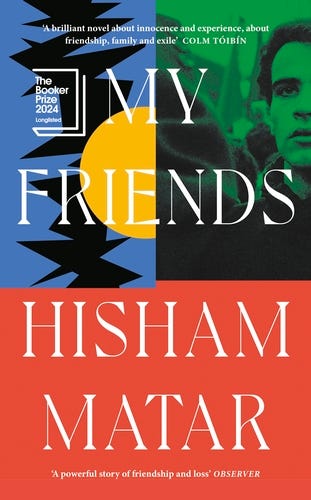

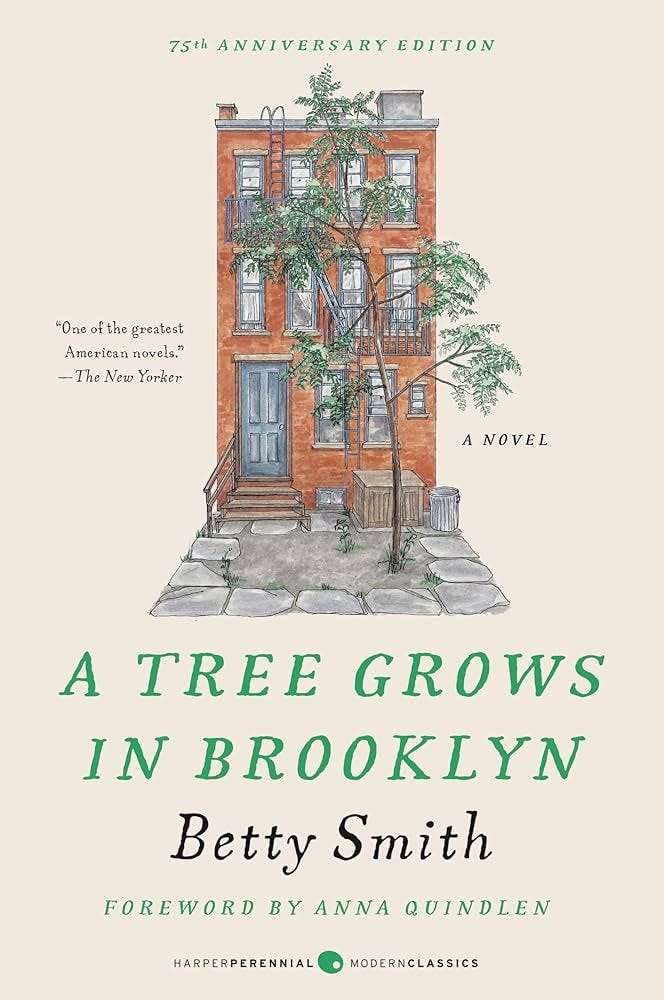

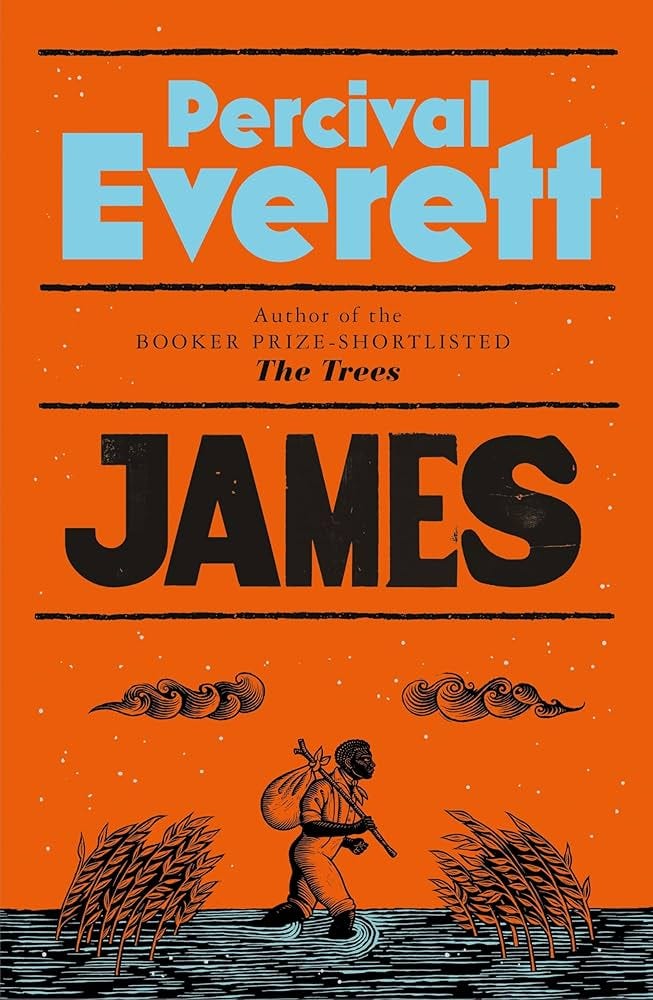


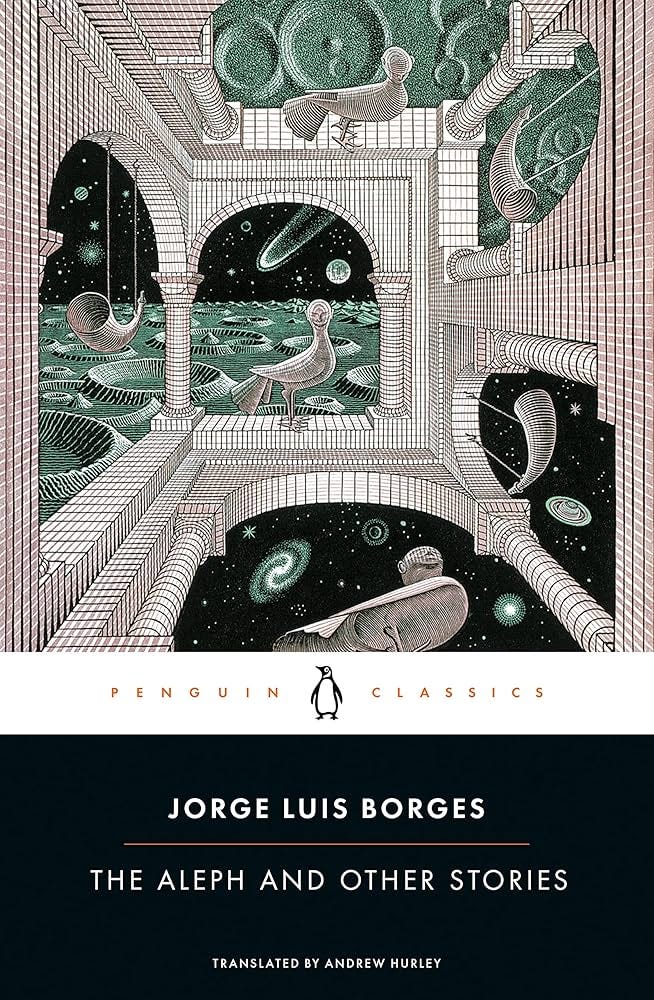
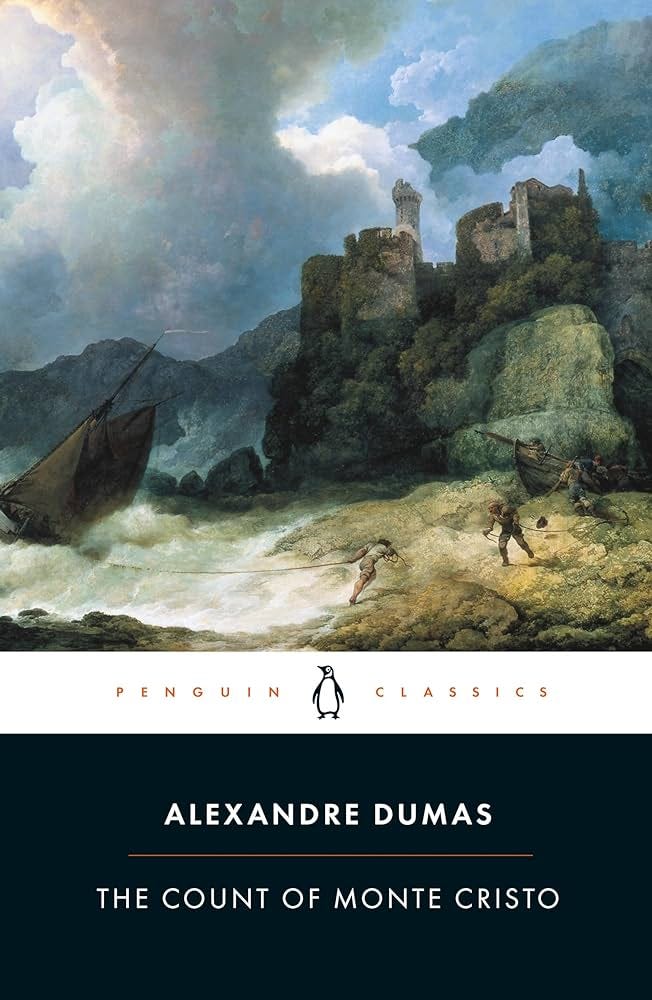
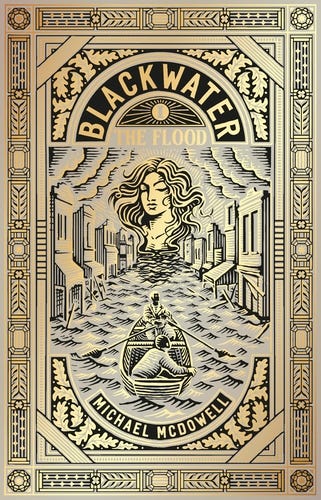
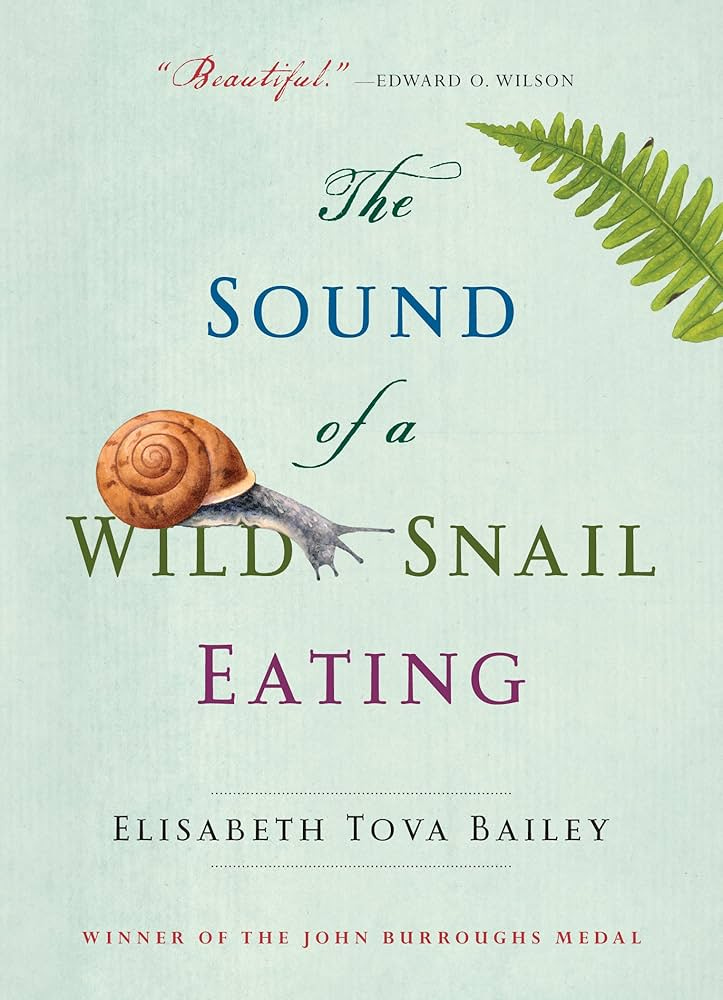
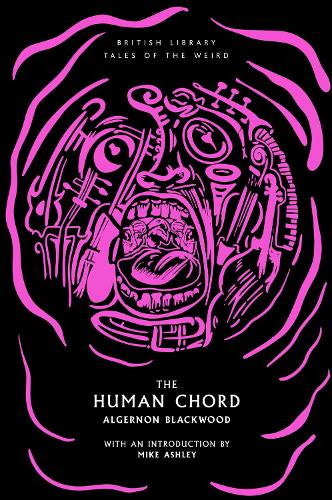
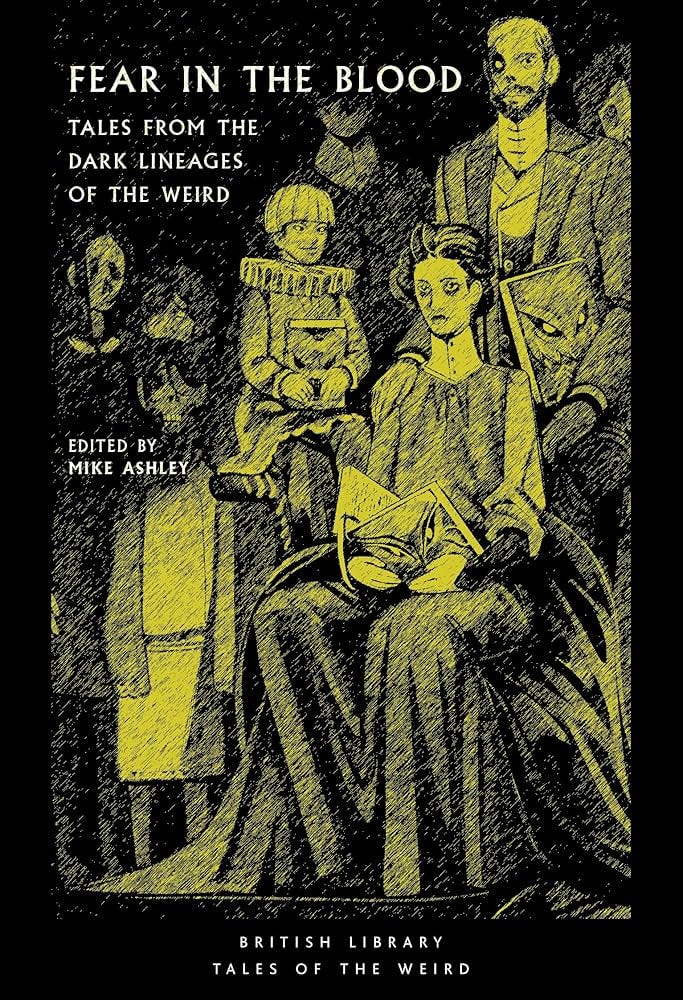

I love to read your outpouring of love for My Friends because I have it on my shelf to read imminently - meditative and overflowing in humanity are two writing styles that mean a lot to me. I have always loosely been interested in A Tree Grows in Brooklyn and this review has confirmed that interest!
I am waiting for James to come out in paperback and I am intrigued by your reflections. You are the first person I have seen be slightly critical of James (and I love that) because so far, I have only read reviews giddy with admiration. It has left me feeling apprehensive to read it - but now I feel more ready! You’ve given me more meat to think about and I really appreciate that. Everett is a star writer and I like The Trees parallel you’ve made because I enjoyed that book a lot.
I definitely recommend going from the top again with Butlers trilogy! I read it back to back and it is a reading experience I recommend to everyone. I felt an enormous sense of loss when I finished Adulthood Rites. Someone close to me has Parkinson’s and I thought Piñeiro’s depiction was perfection - especially the structure. I thought the book taking place across a singular day was genius because days do feel so long when you have no control over your body.
I have always wanted to read The Sound of a Wild Snail Eating - and as someone with a chronic illness myself, I am really interested in the comfort you describe.
A great (two) months! I really look forward to your review of The Last Warner Woman as someone who has recently read their first Miller. This signals the end of all of my thoughts - thank you for a great read!
I really want to read My Friends so I’m glad to hear you speak so highly of it! Also, I read Elena Knows a couple of years ago now but her depiction of living with PD has stayed with me to this day. Incredible writing.